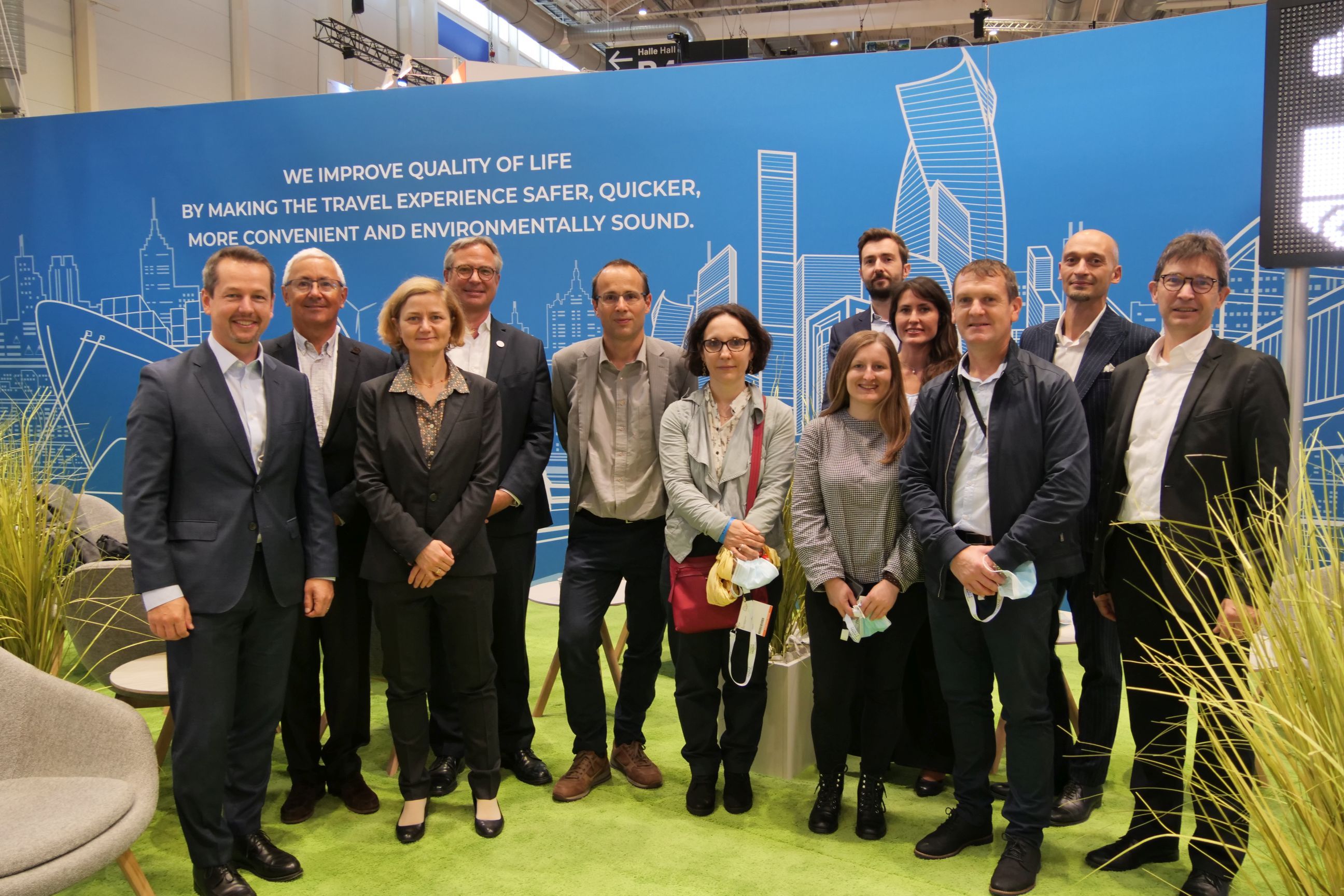SWARCO wins contract to support City of Paris' green ambitions
As a subcontractor to the CiELiS consortium, SWARCO is going to modernize the traffic management in the City of Light
Over the past years, the French capital has introduced incisive measures under the lead of mayor Anne Hidalgo to make Paris greener, fight congestion and reduce air pollution. Restricted access for cars to the city centre, a drastic reduction of parking spaces, an extension of the cycle path network to 1000 kilometers by 2024, and giving back famous Champs-Elysées to the pedestrians by cutting down its number of lanes for car traffic are some cornerstones in the green agenda of Paris.

Representatives from SWARCO, CiELiS and the City of Paris meeting at the ITS World Congress in Hamburg in October 2021
A major impact on CO2-reduction and energy use will have the conversion of all street lighting of the metropolitan area with its 10 million inhabitants to LED technology. The contract for this has been awarded to a consortium called CiELiS, formed by major French industrial players Citelum and Eiffage. Part of this contract also refers to the modernization of the traffic management in Paris in the run-up to the Olympic Summer Games of 2024. And here la Ville de Paris trusts SWARCO as a CiELiS subcontractor with its new urban mobility management suite MyCity.
“We are very happy to be able to work with the City of Paris on a tailored traffic management solution for a sustainable future for the generations to come.
In view of the Olympic Summer Games of 2024, it is the right time to modernize Paris’ traffic management system to add new features, adapt to new mobility services, and accommodate further infrastructure components at any time”Michael Schuch, Speaker of the Executive Board
“We know from many urban traffic projects that there is no “one solution fits all”, says Christoph Bergdolt, Vice President Products & Technology with SWARCO’s ITS Division. “Every city is unique and requires a tailor-made approach. With our modern traffic management software MyCity, which is scalable and flexible due to a modular structure and open to allow the integration of legacy systems and third-party vendors, Paris will have the future-ready response to enable the next-generation mobility evolution”, underlines Bergdolt.
Basic features of SWARCO’s solution cover the minimum requirements of a city mobility management e.g., to allow operators to monitor traffic status in real time, manage daily flows and peak hours to provide travelers the best travel time, as well as the possibility to make decision based on reliable data collected by sensors and detectors after their analysis. “Advanced and premium add-ons address future-oriented features in connection with digitalization and automated vehicles”, explains SWARCO’s Project Manager in Paris, Cristina Ghione. “The advanced solution is hardware-less to promote an easier feasibility for the city in terms of time/cost.
It will primarily encourage a shift towards alternative modes of transportation by prioritizing micro-mobility vehicles and pedestrians at intersections, monitoring them to increase safety and to create an environmentally friendly city. It will foresee the ability to exchange, interpret and render data with connected vehicles (V2X), an additional means to efficient traffic control, as well as the implementation of V2X information dissemination and Traffic Light Forecast / Traffic Light Assistant (TLA). Looking ahead to the Olympic Games of 2024, advanced functionalities like public transport priority (tramway and bus), and priority for emergency or authorized vehicles at signalized intersections (via App) will be essential for the successful management of the event.”